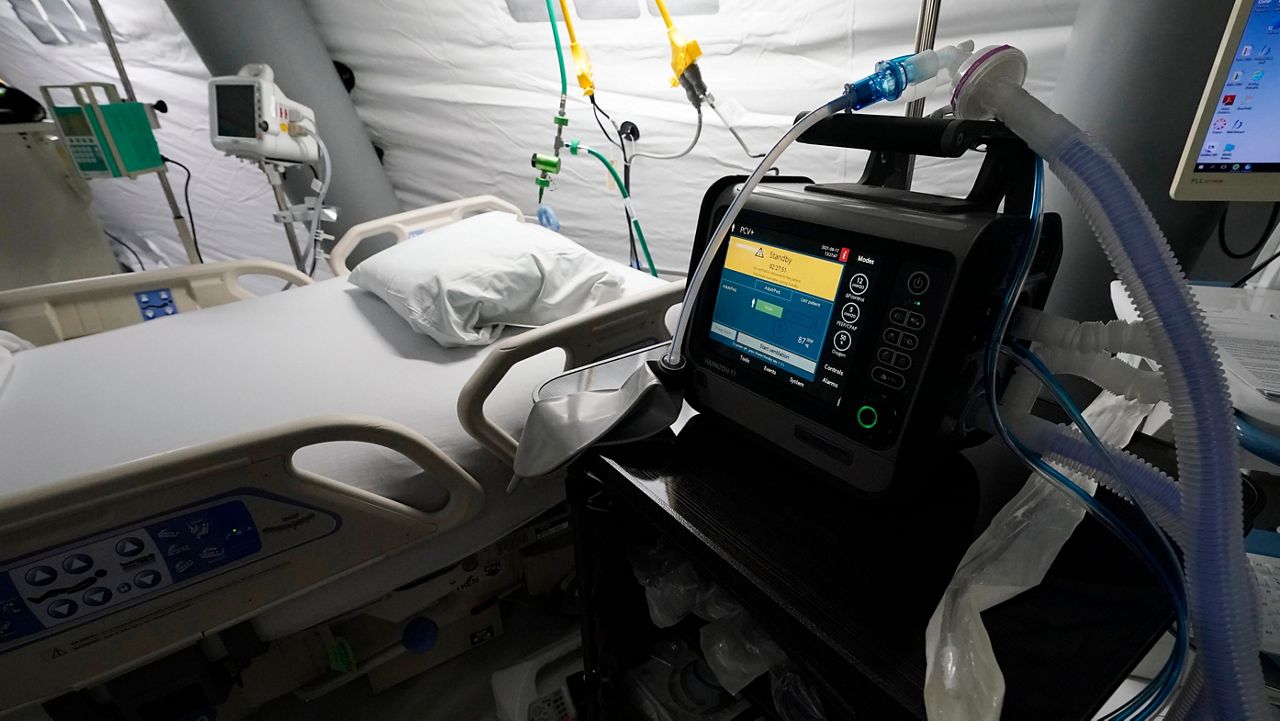The state Division of Homeland Security and Emergency Services will commence new training for emergency personnel this month to help them cope with stress, PTSD and related disorders.
In an exclusive interview with Spectrum News 1 on Wednesday, DHSES Commissioner Jackie Bray said the state received increased reports in wake of the COVID-19 pandemic of first responders burned out due to mental trauma and attempting or dying by suicide.
Law enforcement, firefighters and emergency medical officials are more likely to die by suicide, according to the U.S. Centers for Disease Control & Prevention.
"Coming out of the pandemic, we saw an increase in first responder suicides," Bray said Wednesday. "We saw an increase in first responder trauma and PTSD and that there's a real need out there. Part of our job is to fill that need."
About 30 percent of first responders develop behavioral health conditions including, but not limited to, depression and posttraumatic stress disorder, compared to 20 percent in the general population, according to the The Substance Abuse and Mental Health Services Administration.
The new half-day mental health workshops for first responders will take place May 18 at the State Preparedness Training Center in Oriskany and in Albany on May 25. The training will be offered throughout the year under an expanded partnership with the Institute for Disaster Mental Health at SUNY New Paltz.
Staff from any emergency response agency can register for the workshops.
Bray said the training is part of critical support for first responders who help keep New Yorkers safe.
"One of the most important things for my safety, for your safety, is that we have robust, well-functioning, well-resourced first responder agencies, whether that's EMS or fire or 911 coordinators for law enforcement at the local level," the commissioner explained.
Mental health professionals will conduct the training and teach how to recognize the different levels of traumatic stress, and how to manage staff responses to a typical day entrenched in dangerous situations.
DHSES has previously partnered with the campus' Institute for Disaster Mental Health offering an annual conference focusing on providing mental health services in wake of a disaster or emergency.
"We are now, as DHSES, also really focusing on how do we provide blue-sky day, regular day services and really equip our local first responder departments and leaders with the tools they need?" Bray said.
Workers in the public sector can also take the training to help employers recognize traumatic stress, psychological treatment and strategies for workforce resilience.
Emergency staff will take the information back to their departments and promote management of mental stress with their peers.
Republican Sen. Jake Ashby, of Castleton, is working across the political aisle to tweak his legislation to create a grant for emergency departments to pay for mental health services for staff. The bill is slated to be reintroduced before session ends June 8.
"It's another way to get the ball rolling in a positive direction for mental health, whether it's addiction services whether it's peer-to-peer support for PTSD," Ashby said in the Capitol on Wednesday. "We need to continue to push to help these people that have been struggling and serving our communities for decades."
Lawmakers will work out the details of cost and push for the new grant program in next year's budget talks.
The state invested $1 billion in the latest budget to address emerging mental health crises and push back against the stigma of getting mental health support.
The state Office of Mental Health budget includes $1 million dedicated to services and expenses related to suicide prevention efforts for veterans, first responders, law enforcement and correction officers, according to Gov. Kathy Hochul's office.
"The governor’s FY24 budget initiatives will invest millions of dollars and enhance services across the entire continuum of care, including strengthening the 988 [hotline] infrastructure, expanding Community Behavioral Health Clinics (CCBHC) reopening acute care psychiatric beds and other programs that will benefit all New Yorkers, including first responders," Hochul's spokeswoman Aja Worthy-Davis said in a statement.
State officials will hold both training sessions later this month and take feedback from participants to improve future sessions, which will increase in frequency as the program continues.
"Over the summer and the fall, we'll roll out a regular program that, you know, at least every month, we'll be offering some courses whether at our state preparedness training center at our fire academy or out in local communities," Bray said.










